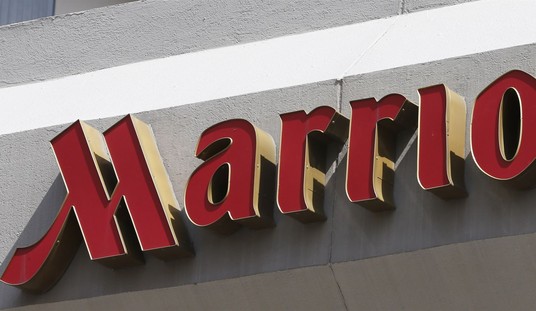While Democrats like Senator Chris Dodd are announcing they will not run for re-election, others contemplating changing from Democrats to Republicans or trying to decide whether or not they have a chance of getting re-elected come next November’s mid-term elections, the left-wing of the Democratic Party is having conniptions about why Obama is selling them out.
During the holidays, one of my few remaining left-wing friends went to several holiday parties. Everyone there, he told me, was complaining about how Obama had betrayed them by discarding the public option and increasing troop levels in Afghanistan (from which they favor unilateral withdrawal). My friend answered that he was not surprised, since Obama campaigned on Afghanistan being “the necessary war” that he his administration would win. That’s why he voted for a miniscule third party.
Ironically, while the hard Left sees Obama as a traitor to their cause (“We elected him,” they continually argue, “yet he has betrayed us.”), the hard Right sees the President as a Manchurian candidate, dedicated to creating a socialist or communist America by stealth means. Aaron Klein of World.Net Daily is co-author of a book to be published in a few months, called The Manchurian President: Barack Obama’s Ties to Communists, Socialists and Other Anti-American Extremists. I am fairly sure that Klein will be able to show that in his past, Obama indeed did have such ties, particularly in his student and Chicago days.
But I remain skeptical that as President today- whatever milieu he grew up in and whatever movements he sympathized with or belonged to- he is now consciously acting as a secret radical trying to enact the agenda of those he hung out with in years past. David Horowitz makes a similar argument about Obama’s ties to the late guru of community organizing, Saul Alinsky. He has written a short essay titled Barack Obama’s Rules For Revolution:The Alinsky Model, available for purchase here.
Horowitz argues in his article that as President, he learned the “strategy of deception” that Alinsky openly advocated and is using that strategy as Chief Executive to achieve his radical agenda through the back door. I agree that Barack Obama is undoubtedly the most left-wing President our nation has had, and that his policies are likely to push America in the direction of European social-democracies, most of which are struggling under the burden of unsustainable entitlements.
But I am not completely convinced by Horowitz’s argument, that Obama is the embodiment of of Alinskyism. Certainly the President at one time was a protégé of Alinsky’s, and worked as a committed member of a group that adhered to his principles. But as President, even if he once hoped that he could use his office to enact such an agenda, he has come up against the realities of our political system and its economic framework, and finds himself constrained by these realities. If Obama’s goal is still socialism or the “revolution,” as Horowitz thinks, he is not making much headway. At any rate, I urge PJM readers to buy a copy of Horowitz’s booklet, and decide for yourself whether or not you find it convincing.
When Obama hoped to save the economy from crashing; he turned to Wall Street. Military realities had him increasing levels in Afghanistan and continuing many of President Bush’s policies. If anything, his kowtowing to despots and his appeasement of the Iranian mullahs has only worked to reveal his inexperience, and has hurt his popularity and his appeal. On the domestic front, he campaigned for the public option and told audiences he favored the single-payer system, the program favored by the Left as the road to socialized medicine a la England and Canada. But as President, he found that this was unobtainable, readily scuttled it and is now trying to put over an unpopular and deeply flawed alternative behind closed doors that both Left and Right oppose, and of which the political center is skeptical.
That is why, in the Washington Post, left-wing columnist Harold Meyerson, an avowed democratic socialist, bemoans the failure of today’s Left to create a social and political movement that will succeed in pushing the President towards the leftist future they fear he has abandoned. Why are they failing, Meyerson asks? His answer: “The absence of a vibrant left movement.”
As Myerson sees it, thinking obviously of FDR’s “second New Deal” which saw the passage of the Wagner Labor Relations Act, the growth of unionism, and the passage of Social Security, a new surge forward necessitates precisely what took place in the 1930’s, such as “mass organizations of the unemployed; farmers’ groups that blocked foreclosures, sometimes at gunpoint; general strikes that shut down entire cities, and militant new unions that seized factories.” And, he notes, “both communists and democratic socialists were enough of a presence in America to help shape these movements, generating so much street heat in so many congressional districts that Democrats were compelled to look leftward as they crafted their response to the Depression.”
Actually, as Meyerson knows, it was only the Communists who became the left-wing of the New Deal; his own beloved Socialist Party of Norman Thomas was a small and ineffective organization, most of whose members deserted its ranks and became liberal New Dealers. And what Meyerson ignores, and what the late socialist historian James Weinstein showed in an important book, The Corporate Ideal in the Liberal State, most of the major social reforms like social security had the support and guidance of large corporations, who favored stability and regulation to prevent a real radical upheaval. I argued much the same about the kind of labor and other social reforms Meyerson thinks were the result of popular struggles, in an essay I wrote decades ago about the conservatism of the actual New Deal, which can be downloaded here, or as a PDF here. (Pay special attention to the data I provide about the major large corporations who supported and lobbied for the Social Security Act.)
Meyerson also argues that it was the civil rights movement, which he notes was led by avowed socialists like Martin Luther King and James Farmer, that pushed Lyndon B. Johnson and John F. Kennedy to pressure a reluctant Congress to “enact fundamental reforms.”
I would make two points in response to that argument. There was a mass civil rights movement, but it was one predicated on using the tactic of non-violence to challenge America to realize the promise of our democracy. Moreover, as recent scholars have shown, the Establishment saw the necessity for civil rights, if the Cold War propaganda of the Soviet bloc that portrayed the entire nation as a racist enclave was to be defeated. And King and Farmer who were undoubtedly privately socialists of one sort of another, never made their economic views public or argued on the behalf of a socialist program.
So Harold Meyerson calls for “autonomous, vibrant mass movements.” Unfortunately for him, one does exist today, and as you guess, he is anything but happy about it. This is because it is the Tea Party movement, that so irritates the Left, whose spokesmen condemn it as “right-wing populism” gone mad. But without a counterpart on the left, Meyerson worries that “Congress isn’t feeling much pressure from the left to move Obama’s agenda.”
As for the Right, he says that its movement has had “great success,” but “isn’t really for anything but that has channeled anew the fears and loathings of millions of Americans.” Meyerson claims to speak for the real people; who want what he earlier says is Obama’s true desires: “health care for all, financial re-regulation, climate-change legislation and a Keynesian stimulus to revive a wounded economy.” But instead of a new “progressive era,” we have “right-wing pseudo populism.”
Mr. Meyerson does not understand, evidently, that common people do not want cap and trade that will decrease jobs and take money from their pay checks for high priced utilities; nor do they want a stimulus that helps the banks and corporations and does little for Main Street.
So how does Meyerson hope to gain his desired mass movement? Not by community organizing as practiced by the ACORN types. No, he asks instead that it be created by Rachel Maddow and Keith Olbermann! I kid you not. After all, he thinks the tea parties were created by Glenn Beck, who actually moved to support them after local groups started them on their own. His own group on the democratic Left are too busy working in the higher echelons of journalism and the academy, I think, to be bothered with actual organizing efforts of those they purport to lead. So it seems he prefers to write a column and ask his favored media figures to do the work for him.
In past years, Harold Meyerson was a member of the democratic socialist group led by Michael Harrington and whose intellectual star was Irving Howe. Were these men still alive, they would have been horrified to read Meyerson’s column. Harrington and Howe may have had wrongheaded ideas, but they were serious people who eschewed all forms of populism. I knew Harrington and Howe well, and to them and Meyerson I say, “you are no Harrington and Howe.”
So if today’s Left has to depend upon Maddow and Olbermann to do its work for them, I think conservatives have little to worry about.









Join the conversation as a VIP Member